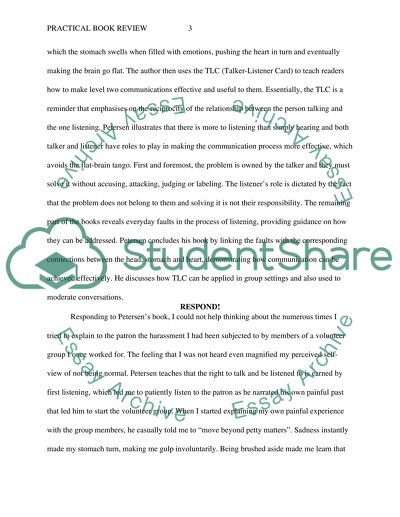Cite this document
(“Practical book review, Petersen, James C., D.Minn.L.P.C. Why don't We Report/Review”, n.d.)
Retrieved from https://studentshare.org/psychology/1651044-practical-book-review-petersen-james-c-dminnlpc-why-dont-we-listen-better-communicating-connecting-in-relationships
Retrieved from https://studentshare.org/psychology/1651044-practical-book-review-petersen-james-c-dminnlpc-why-dont-we-listen-better-communicating-connecting-in-relationships
(Practical Book Review, Petersen, James C., D.Minn.L.P.C. Why don'T We Report/Review)
https://studentshare.org/psychology/1651044-practical-book-review-petersen-james-c-dminnlpc-why-dont-we-listen-better-communicating-connecting-in-relationships.
https://studentshare.org/psychology/1651044-practical-book-review-petersen-james-c-dminnlpc-why-dont-we-listen-better-communicating-connecting-in-relationships.
“Practical Book Review, Petersen, James C., D.Minn.L.P.C. Why don'T We Report/Review”, n.d. https://studentshare.org/psychology/1651044-practical-book-review-petersen-james-c-dminnlpc-why-dont-we-listen-better-communicating-connecting-in-relationships.


